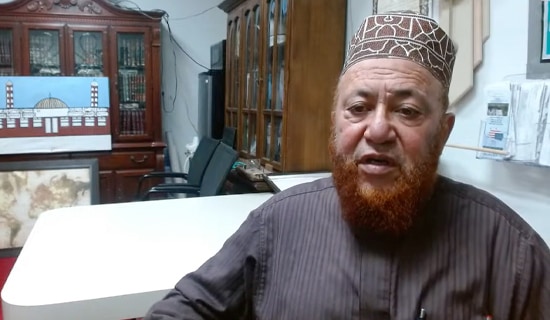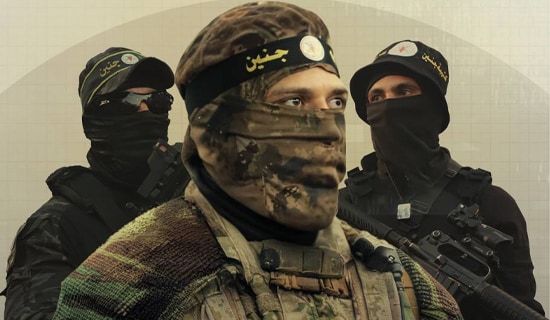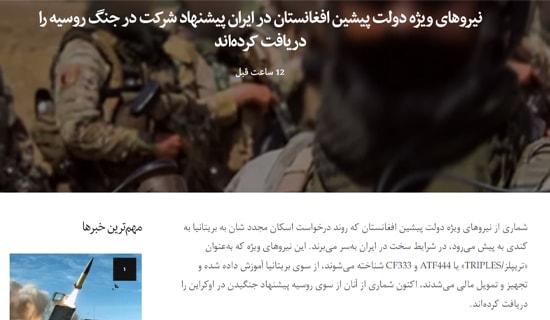The fulminant revolt in Russia is over. As the mutiny, organized by Yevgeny Prigozhin, the founder and owner of Wagner Group (the world's largest private army created with Russian President Vladimir Putin's blessing and financed by Russian state funds), failed, it's time to assess its causes and consequences for both Russia and the world.

(Source: Ren.tv)
'A Real, Full-Scale Civil War Is Impossible In Today's Russia'
What can one say about the recent revolt?
First, we saw the effects of the Russian state apparatus' destruction caused by Putin's long-time policy of denying responsibility for many crucial actions that he himself orchestrated. As happened during the annexation of Crimea, when Putin claimed that "Russian servicemen were not involved," no one mentioned where the Wagner Group got its tanks and anti-aircraft systems. I have argued many times Russia has turned into a "commercial state."[1] Indeed, the mercenary army is a clear example that Putin's Russia is a corporation rather than a state.
Second, we received powerful proof that a system based only on personal loyalties cannot be effective. It was reported that chiefs of both the army and the different security services, who were specifically chosen because of their "personal loyalty" to the President and served in their positions for more than a decade,[2] disappeared with the first signs of uncertainty and did nothing to confront the mutineers. It is for these reasons that the Wagner group mercenaries were able to freely march for almost 500 miles from the frontline towards Rostov-on-Don, a city with more than one million inhabitants hosting the military headquarters responsible for the entire operation in Ukraine, and from there to Moscow.
Third, and a more important point, the Russian population proved to be totally ambivalent about the unrest and had seemingly no appetite for participating in any quarrels – whether on the side of "revolutionaries" or on that of the "legitimate authorities." Even though many analysts argued that the recent events should be considered a sort of a "miniaturized" civil war,[3] I would greatly disagree with this view. A mutiny of a regiment isn't a civil war unless it starts as part of such a conflict (in this sense, if one turns to Russia's history, the 1921 Kronstadt revolt can be counted as an episode of civil war, while the 1917 Kornilov mutiny cannot). Hence, I would repeat my point: A real, full-scale civil war is impossible in today's Russia,[4] and the country stood much closer to it in both 1991 and 1993 rather than in the recently attempted munity.
It Wasn't A Coup
In addition to everything said above, one should also try to define Prigozhin's démarche. Some observers call what happened a "mutiny," while others use the word "rebellion," or describe it as a "war against the Russian Ministry of Defense." There are also those that call it a "march of justice," as Prigozhin himself did. However, quite often it is labelled a "coup." The Western press often prefers to talk about "a coup that wasn't," or "a breezy coup attempt," or even "a half-baked coup."
Indeed, Wagner's march cannot be called a coup, and not even a coup attempt. Prigozhin never expressed any intention to depose Putin or even to challenge his rule. Prigozhin, whose fighters spent many months storming the Ukrainian town of Bakhmut, looks more like a medieval crusader who tries to get rid of the instructions issued by king's war minister, who was promoted to a marshal position despite never serving in the army but simply because he's a long-time favorite.
Of course, one may argue that Prigozhin's mutiny has damaged the President's standing, or even say that it made visible "more cracks emerging in the Russian façade,"[5] but it wasn't a coup attempt like those in Russia in either 1991 or 1993. This fact is crucial for any speculations concerning its possible consequences.
What can be said is that Prigozhin's démarche created significant difficulties for both Putin and his inner circle. It seems like Putin has become even more suspicious and nervous than ever before. He desperately looks for the most credible person in his team, and may believe that Viktor Zolotov, the commander of the National Guard, is the trustworthy one. For this reason, it was recently announced that the National Guard will soon receive heavy weapons and tanks.[6] Furthermore, it was reported that the highest-ranking Russian officials believe that Putin is vulnerable to other possible insurrections – and this time they might target him rather than his closest aides. Therefore, the trust that might still be present inside the Kremlin has evaporated – but even this doesn't mean Putin's time is over.
'Anyone Who Assumes Power These Days In Russia Would Want To Leave The Kremlin Quite Soon'
Wagner's munity was a unique one that cannot repeat itself. Most of the Russian population does not see Prigozhin as someone belonging to Putin's clan. Even though Prigozhin became a billionaire thanks to his corrupt connections to the Kremlin, he was treated as someone to use to oppose the "fat rats," rather than a member of Putin's inner circle. After his exile, there is no outsider that can lead an armed group against the Kremlin. So, after surviving the current tensions, Putin will be "reelected" to Russia's presidency early next year.
Why does my forecast so strongly favor the Kremlin? There are several reasons for this.
First, any attempt to seize a state power should have a clear beneficiary. Russia, however, distorted as its judicial system might be, will hardly welcome some bodyguard who may kill the President as the country's new leader. Both recent coups were headed by either Soviet or Russian vice-presidents, and this was why this position was once and forever abolished from the state hierarchy.
Under the current Constitution, the Prime Minister becomes an interim President if his predecessor dies or is incapable of remaining in office.[7] Hence, a real coup should involve a rather large group of people and install someone possessing at least some legal grounds for enjoying supreme powers.
Building such a coalition has always been difficult, and these days it is even more so. Moreover, Russia is facing too many challenges to be seen as a desired prize: if someone were to assume power now, they would probably preside over a humiliating defeat in Ukraine, the aggravating economic crisis, the problematic negotiations concerning the lifting of the Western sanctions that may include the issue of compensations to be paid to Ukraine, etc. The demobilized army may create additional problems, as may the former prisoners who should be pardoned for their service. So, in general, it looks quite probable that anyone who assumes power these days in Russia would want to leave the Kremlin quite soon. To my mind, the Russian elite groups these days would prefer to let President Putin go his way up to the end, and to overtake the ailing country after a serious collapse happens.
Putin Has No Intention Of Quitting The Presidency
Second, Putin himself has no intention of quitting the presidency. His entire career proves that he values himself and his personal powers above all benefits of the system, both real and illusionary.
He had a perfect time to leave in 2012, when he was not involved in any serious wrongdoings and was protected by the law granting immunity to presidents even after ceasing to exercise their powers.[8] Nevertheless, he decided to return to the Kremlin, after serving as Prime Minister, and to start a new period in Russia's history that looks now like a lost decade. Now, wanted by the International Criminal Court and recognized as a war criminal, Putin will never resign, since he knows too well what happened to ex-President Milošević after he admitted his defeat in the 2000 presidential elections.[9]
Therefore, the "soft" transition, or what the Russian analysts have for years called a "transfer of power," is also not an option. One should expect that Putin will try to strengthen his position, reinforce his security services, become more active in public, and organize the March 2024 elections as a performance that may produce only one result (it seems the voting will take part over the course of three days, almost any observers will be banned from entering polling stations, the voting might be organized outside specially designated halls, etc.). The preparations for the election campaign started well before Prigozhin's mutiny,[10] and there are no signs they have stopped since.
After The Wagner Rebellion, Putin Has More Legitimacy To Continue The War In Ukraine
Third, the recent unrest proved another important fact: Even though Wagner mercenaries deserted the frontline, the Russian forces seem to hold firm their positions against the Ukrainians. For Putin, the war with Ukraine has become the one and only project he wants to continue – as long as goes on, he may claim that Russia is being attacked by the entire world and he is the only person able to save the country. The Wagner revolt, I would emphasize, happened after more than a month of intensive accusations made by Prigozhin against the Defense Ministry, which seemingly refused to arm his regiments.[11]
Prigozhin repeatedly claimed that the Russian defense lines are fragile, and therefore without his troops the front may collapse. Many servicemen in the regional army sympathized with him because they also became doubtful about the perspectives of the war. Now Putin should look for options to intensify the fighting rather than to ease it – the Wagner rebellion gave him all the powers to do so: Paradoxically, these days he possesses an even more extended mandate for continuing the war in Ukraine than he had before the uprising.
'The Revolt Gained No Support From Civilians'
Fourth, the mutiny almost "nullified" the Russian emigrant opposition, which for years advocated a peaceful and legal transition of power through fair elections. The Wagner revolt had shown that a couple of thousand armed men can shatter the foundations of the regime much more effectively than YouTube shows and blogs that are seen, read, and enjoyed by millions of people. The impact was so strong that one Putin's most devoted critics, billionaire businessman Mikhail Khodorkovsky, passionately appealed to the Russian public to take up arms and to fight the current regime for… securing the position of Prime Minister for himself.[12]
I haven't seen a single positive reaction to this address, even from those opposition activists who long ago left Russia, not to mention from someone staying in the country. It seems now that only a revolution may destroy the regime, but the revolt gained no support from civilians – even while the same Khodorkovsky at the very start of the mutiny voiced his sympathy for Prigozhin, saying that the advocates of "the better Russia" must endorse even a devil if the devil would try to overthrow the Putin system.
Conclusion
Summarizing all the above, I would argue that Prigozhin's mutiny was a painful, but by no means fatal challenge to President Putin. With high certainty, Putin's regime will consolidate itself in the upcoming months, as some minor changes will be introduced and more capable generals will be appointed to lead the troops. Putin will behave himself, as he had already started his reelection campaign, and his closest allies will remain loyal to him. The Russian power system looks fragile now, but the entire bureaucratic class as well as large businesses and millions of state employees still benefit from it, so any kind of change now looks more challenging. There's no doubt that the decomposition of Putin's regime has started – but no one can say for sure how much time may pass till the final crackdown will come…
*Dr. Vladislav Inozemtsev is the MEMRI Russian Media Studies Project Special Advisor, and Founder and Director of the Moscow-based Center for Post-Industrial Studies.
[1] Ridl.io/outliving-putin-co/, May 11, 2021.
[2] T.me/kremlebezBashennik/32305, February 20, 2023.
[3] 24tv.ua/ru/grazhdanskaja-vojna-rossii-24-ijunja-2023-goda-obognala-gugl_n2340690, June 24, 2023.
[4] Republic.ru/posts/108684, June 9, 2023.
[5] Cnn.com/2023/06/25/politics/antony-blinken-russia-putin-wagner-cnntv/index.html, June 25, 2023.
[6] Lenta.ru/news/2023/06/27/tankorosggvard/, June 17, 2023.
[7] Constitution.ru/10003000/10003000-6.htm
[8] Consultant.ru/document/cons_doc_LAW_30387/25eb3a123115367a95c5d52d42da11e50f2f5657/
[9] Ip-quarterly.com/en/milosevic-option
[10] Rbc.ru/politics/02/04/2023/64297e629a7947fae31033c2, April 2, 2023.
[11] Reform.by/prigozhin-obvinil-shojgu-v-razvjazyvanii-vojny-radi-marshalskih-pogon-i-lzhi-o-situacii-na-fronte, June 23, 2023.
[12] Moscowtimes.ru/2023/06/28/hodorkovskii-prizval-rossiyan-s-oruzhiem-v-rukah-sdelat-ego-premer-ministrom-a47383, June 28, 2023.





